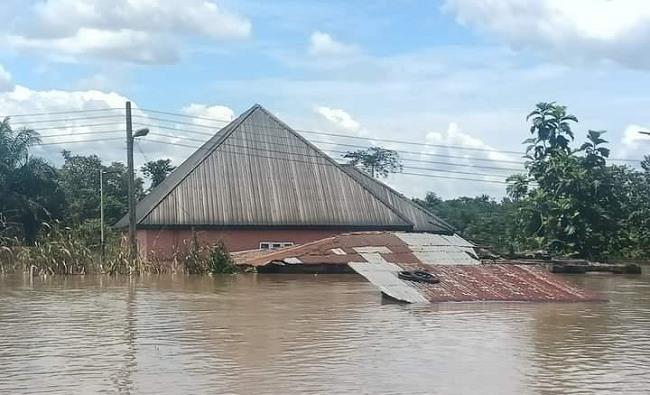Following the recent weather forecast for 2023 released by the Nigerian Meteorological Agency (NiMet), Corporate Accountability and Public Participation Africa (CAPPA) has urged relevant federal, state, and local government agencies to invest in infrastructure that will address the causes of flooding and its effects on the citizens.
The NiMet projections warned of extreme fluctuation in the timing of the start of rain in most of the nation and that Bayelsa, Rivers, and Akwa Ibom state’s coastal zone will see unpleasant variations in rainfall as early as March.
The commencement of rains is anticipated to be delayed in Katsina, Zamfara, Kano, Jigawa, Yobe, Cross River, Ebonyi, Imo, and Rivers until May.
Read Also: Stakeholders urge FG to dredge River Niger, Benue to combat flood
Rains won’t start falling in Sokoto, Kebbi, Zamfara, Kano, Katsina, Jigawa, Yobe, or Borno until June or July. Only Adamawa, Bauchi, Gombe, Kwara, Oyo, Ogun, and Lagos will have levels that are close to average but in an unsettling number.
According to NiMet, there will be more floods in 2023 as a result of the evident acceleration of climate change and human-triggered activities such as careless waste disposal. The floods will also be more intense and last for a shorter period of time.
According to CAPPA, the floods of 2022, which devastated the majority of the states of the federation and resulted in fatalities and economic losses totalling over N4 trillion, were avoidable disasters that must never happen again.
In a statement released in Lagos, CAPPA stated that the flood had caused displaced people, hunger, and scarcity, necessitating the need for all hands to be on deck, particularly the federal and state intervention agencies like the National Emergency Management Agency (NEMA) and their state-level counterparts to work seamlessly in resolving historical conflicts.
The Executive Director of CAPPA, Akinbode Oluwafemi, said: “We must commend NIMet for the timely warning which should enable federal and state level planning to begin. We are however worried that nothing seems to have changed since the 2022 flood at the federal and state levels.
“The lackadaisical attitudes that led to the loss of lives and property are still with us even though the 2022 floods affected about 20 states, killed about 603 people, and rendered more than 1.3 million homeless while over 108,393 hectares of farmlands were destroyed with attendant effects on food security, the economy, health, security, and the environment and that affected Nigerians are still battling with.”
CAPPA urged the Federal and sub-national Governments to work together in responding to the early warning systems in order to prevent a repeat, adding that money should be allocated for the building of buffer dams to hold back the flow of extra water from upstream sources, particularly the Lagdo Dam in Cameroon.
CAPPA also advised NEMA to use precise geographic information systems and other meteorological data to help with emergency evacuation and decrease human exposure to flood danger.
Story was adapted from Enviro News
